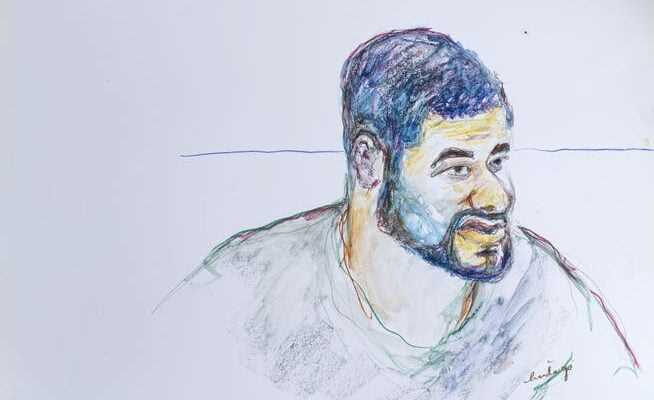After a short period of integration, the young inmate is to be integrated into the normal prison regime in a Zurich remand prison. For the lawyers, the decision comes “far too late”.
Brian K. should be able to leave the correctional facility soon.
He is probably the most famous prisoner in Switzerland: the young criminal Brian. He has already spent ten years of his life behind bars. And for over three years he has been living in security custody in the Pöschwies correctional facility, i.e. in almost total isolation.
Now the 26-year-old will be transferred to a Zurich remand prison in the next few days. The Zurich Justice Department wrote in a statement on Wednesday. Brian is supposed to be integrated into the normal detention regime there. This includes the opportunity to maintain contact with fellow inmates.
The authorities are thus reacting to pressure from several sides. The National Commission for the Prevention of Torture (NCPT) published its report on Brian’s detention conditions in November. In particular, she criticized the long duration of solitary confinement.
This could seriously affect mental health and severely limit the possibility of rehabilitation. Comprehensive measures should therefore be introduced to work towards an end to the offender’s solitary confinement – and to avoid deterioration in health (see the report). Last summer, the commission was asked by the head of the Zurich judicial department, President of the Government Council, Jacqueline Fehr (sp.), To comment on Brian’s detention conditions.
Brian is supposed to “build conflict-free relationships”
At the same time, the Federal Supreme Court repeatedly ruffled the Zurich authorities and urged them to act quickly. In particular, the possibility of relocation should be checked again in order to break up the deadlocked situation. Most recently, in December, the court ordered the Zurich Higher Court to draw up a concept for easing the detention regime.
The Federal Court pointed out early on that the 26-year-old posed a “not to be underestimated” danger to other people, especially to prison staff. But it is not to be seen “that the higher court is not able to recognize any problems”.
In its communication on Wednesday, the Justice Department now writes that Brian’s cooperation is needed for a sustainable improvement in the situation. This is still missing in the current setting. Nevertheless, the authorities want to move from the Pöschwies JVA to a remand prison.
After a short period of integration, the offender is to be integrated into the normal detention regime at the new location. “With the transfer we want to enable Brian to work on his development and, in particular, to build conflict-free relationships with employees and fellow prisoners,” Jacqueline Fehr is quoted as saying. She would like to thank all employees for their willingness to «find a good solution to this demanding situation».
Brian’s lawyers criticized the judiciary’s decision as “clearly too late” in a statement. The authority is now showing itself to be a little more cooperative. However, one doubts that solitary confinement will actually end. The collective therefore demands immediate release from prison.
UN criticism: “not in conformity with international law”
The situation has been demanding for a long time. The 26-year-old has had a long odyssey through various institutions. Known under the pseudonym “Carlos”, he is currently still housed in a special cell in the Pöschwies JVA, specially built for inmates like him.
It all started in 2013 with a report about a youth attorney who was taking early retirement. Brian also appeared in the report. The delinquent juvenile was in a special setting that cost 29,000 francs per month. A judicial controversy arose that continues to this day.
In addition to the Zurich authorities, the controversy concerns not only the Federal Supreme Court and the NKVF, but also the UN. Nils Melzer, special rapporteur on torture, criticized Brian’s imprisonment as “not in conformity with international law” (on the report). No work, no leisure activities, solitary confinement: Switzerland’s treatment of the prisoner violates the anti-torture convention.
Brian sued his detention conditions a year ago – and he was right. However, it was about a stay in prison in Pfäffikon at the beginning of 2017. According to a ruling by the Zurich District Court, his treatment violated the European Convention on Human Rights. Brian had to sleep on the floor, received no clothes, and was not allowed to receive visitors. The prison conditions were inhuman and degrading, according to the verdict. Despite Brian’s aggressive behavior, there were alternatives.
Brian came into conflict with the authorities early on. As a fourth grader, he had to stay in a closed institution in Winterthur for a month and a half because he was suspected of having started a fire in a shed. However, the investigation revealed that he was innocent. When he was 15, he was admitted to a mental hospital after attempting suicide. There he was handcuffed to the bed for thirteen days and given medication to sedate him. This incident is still preoccupying the judiciary.
